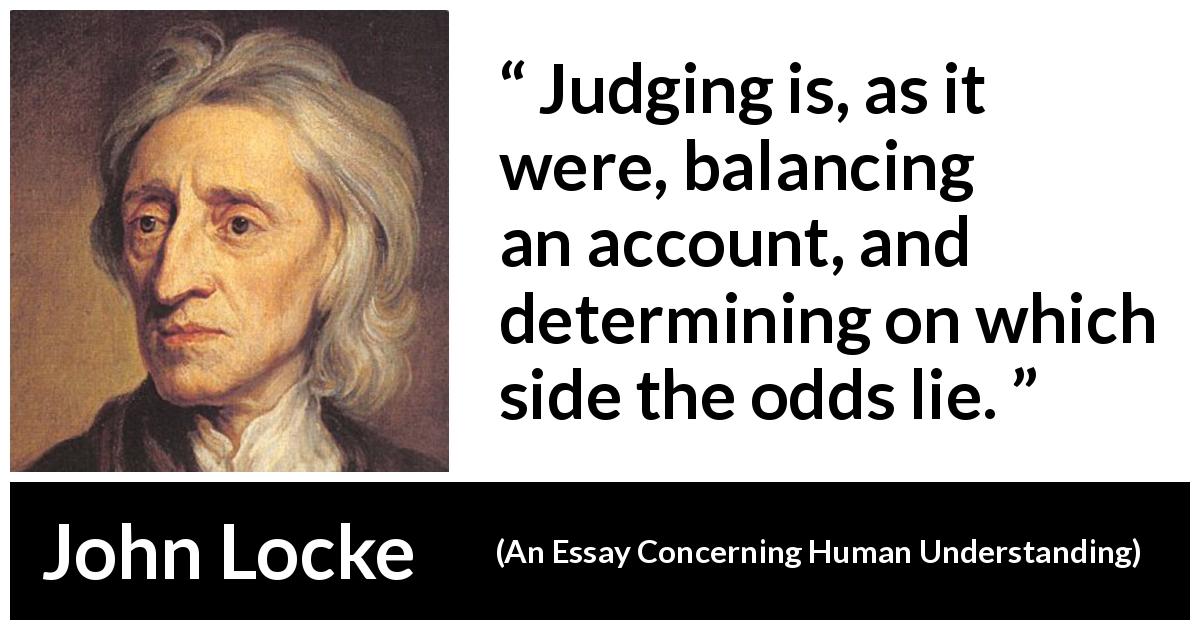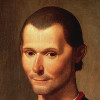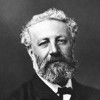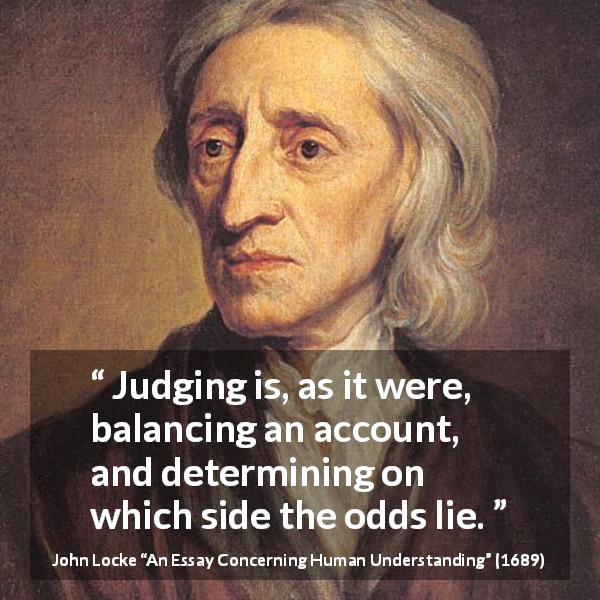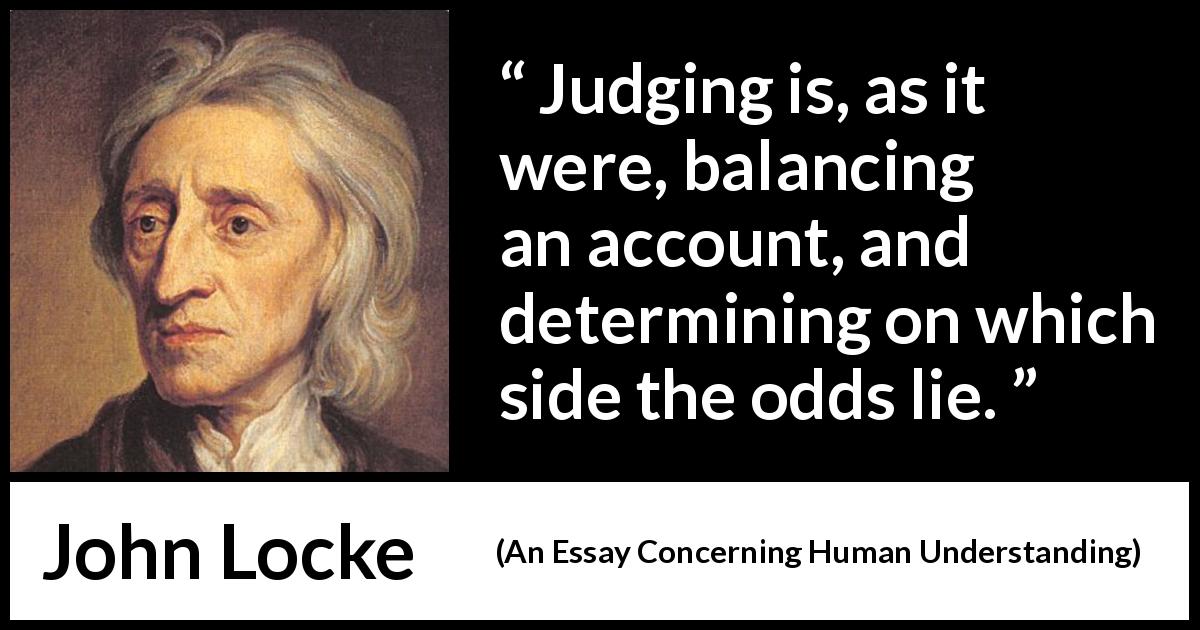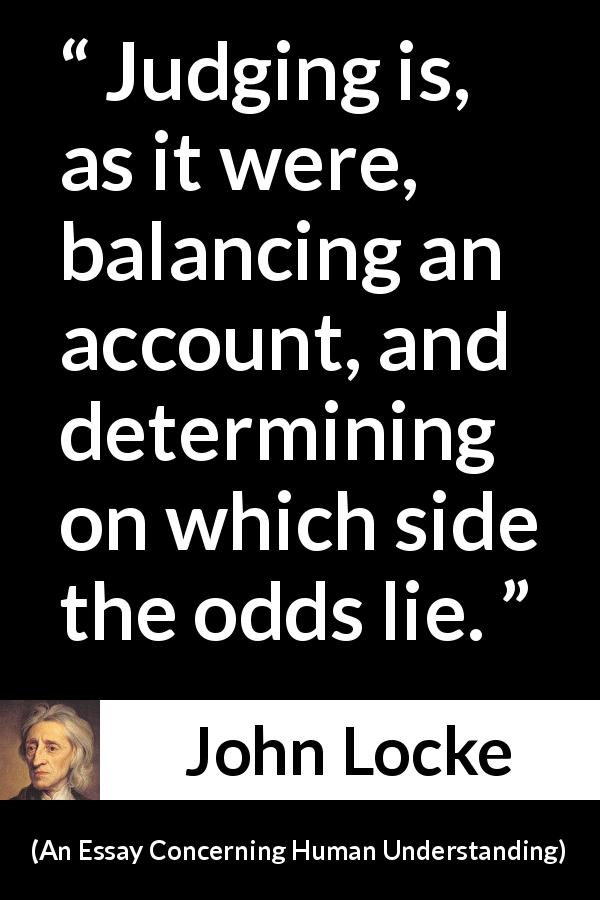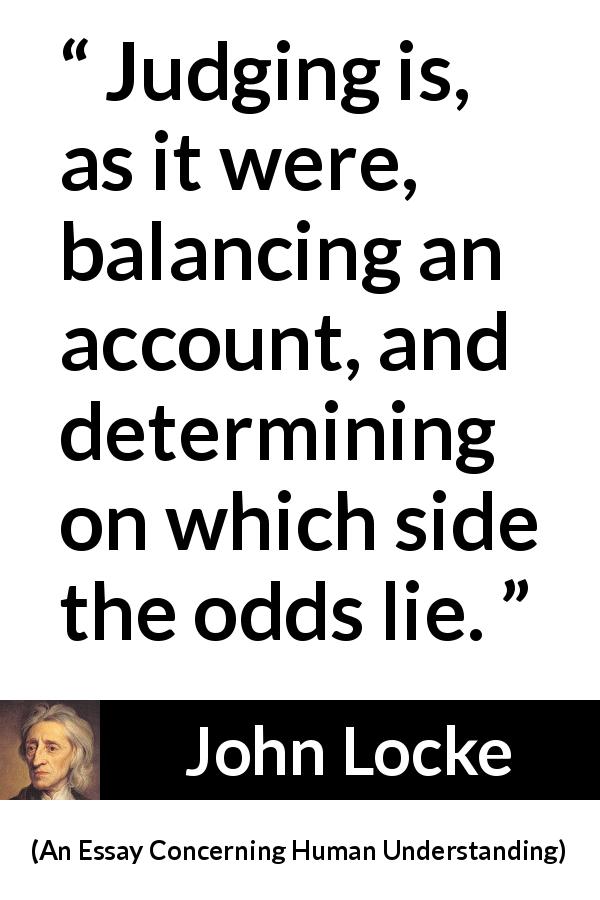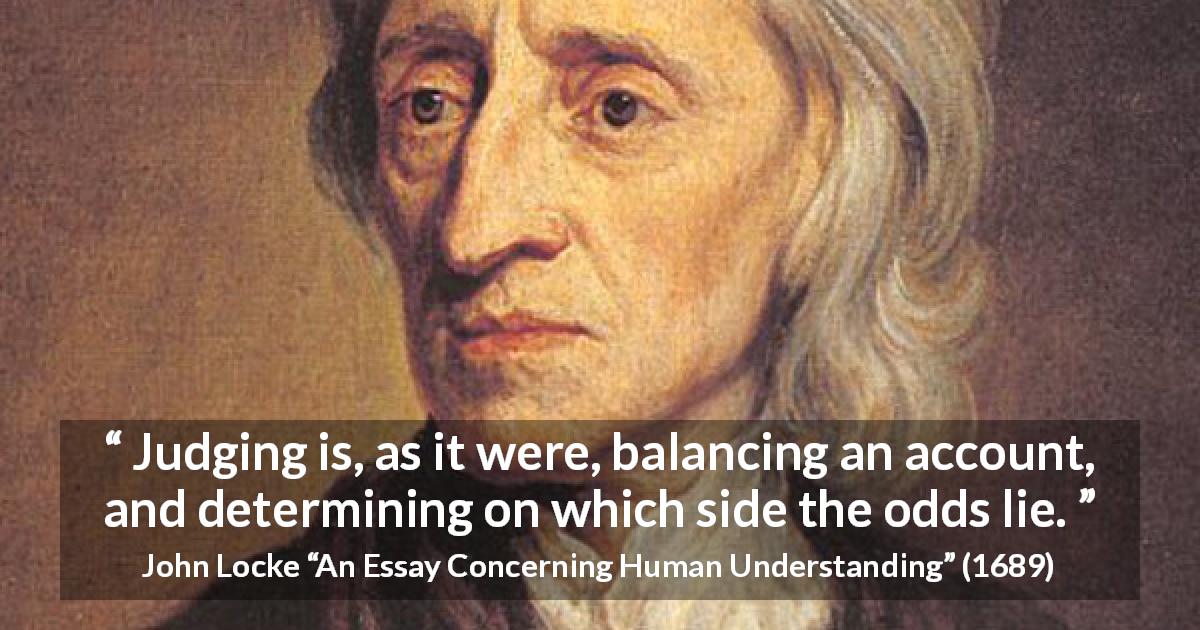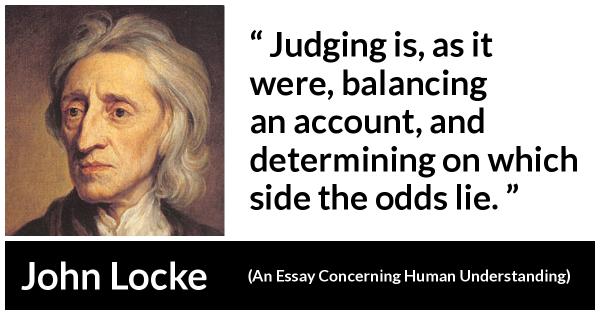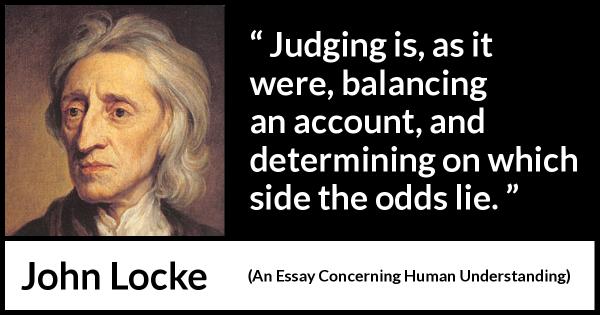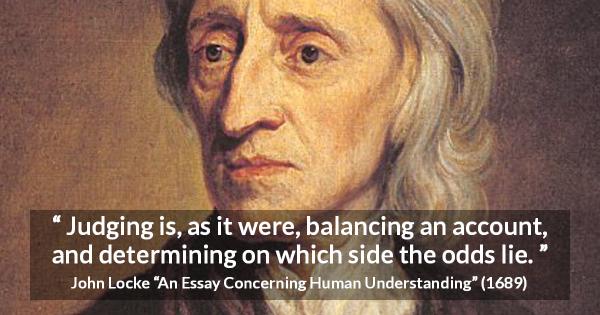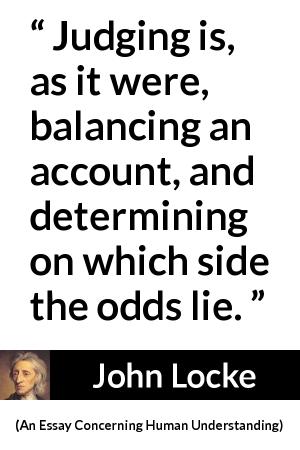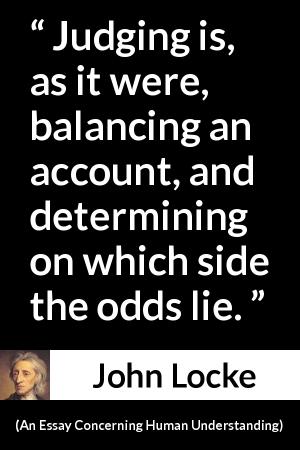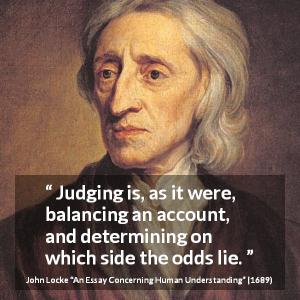“ Judging is, as it were, balancing an account, and determining on which side the odds lie. ”
John Locke, An Essay Concerning Human Understanding (1689). copy citation
| Author | John Locke |
|---|---|
| Source | An Essay Concerning Human Understanding |
| Topic | judgement balance odds |
| Date | 1689 |
| Language | English |
| Reference | |
| Note | |
| Weblink | http://www.gutenberg.org/files/10615/10615-h/10615-h.htm |
Context
“(i) IGNORANCE: He that judges without informing himself to the utmost that he is capable, cannot acquit himself of judging amiss.
(ii) INADVERTENCY: When a man overlooks even that which he does know. This is an affected and present ignorance, which misleads our judgments as much as the other. Judging is, as it were, balancing an account, and determining on which side the odds lie. If therefore either side be huddled up in haste, and several of the sums that should have gone into the reckoning be overlooked and left out, this precipitancy causes as wrong a judgment as if it were a perfect ignorance.” source
(ii) INADVERTENCY: When a man overlooks even that which he does know. This is an affected and present ignorance, which misleads our judgments as much as the other. Judging is, as it were, balancing an account, and determining on which side the odds lie. If therefore either side be huddled up in haste, and several of the sums that should have gone into the reckoning be overlooked and left out, this precipitancy causes as wrong a judgment as if it were a perfect ignorance.” source
